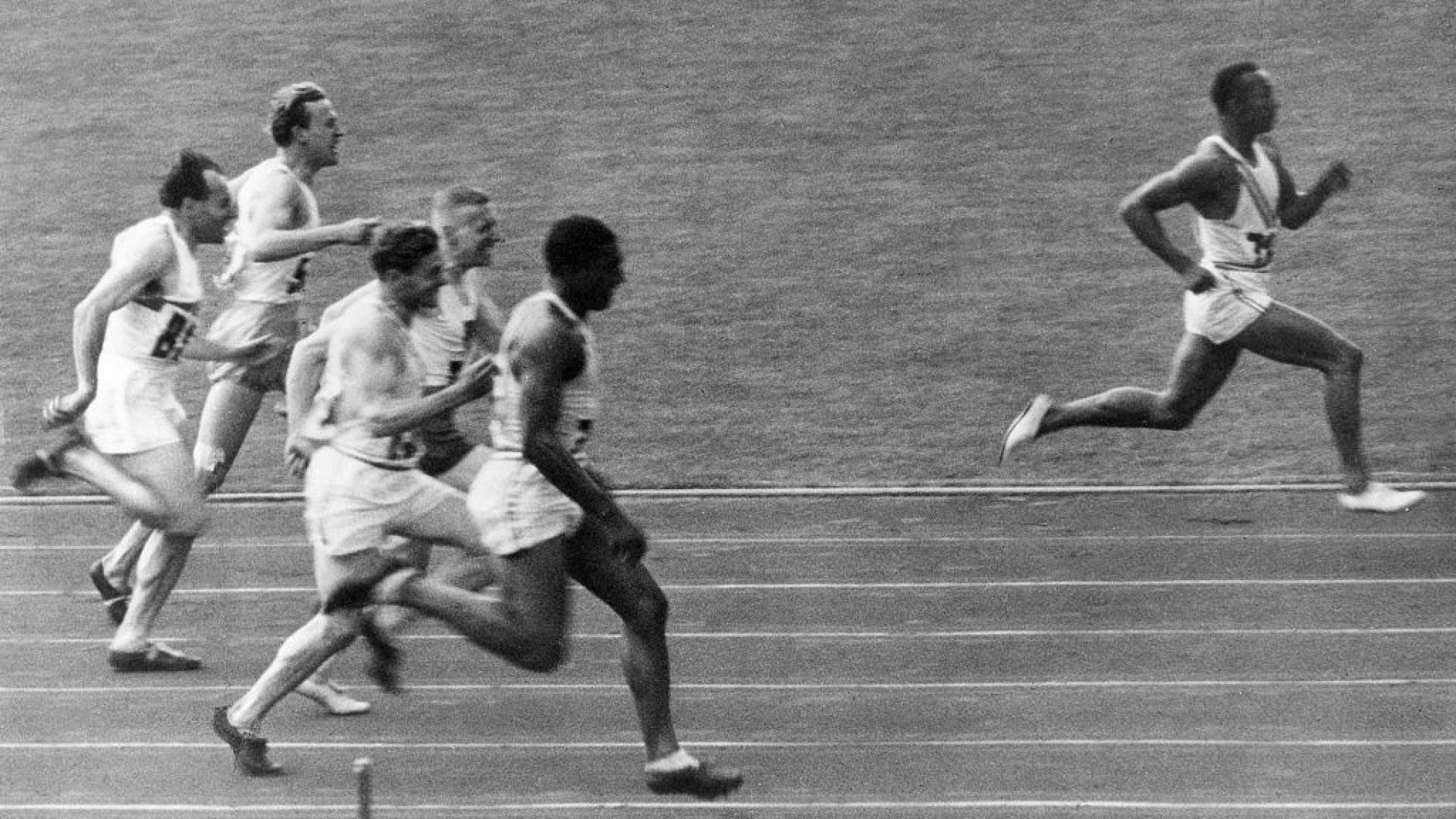
On this day in 1936, at the Olympic Games in Berlin, track and field star Jesse Owens shattered Hitler’s white supremacist propaganda in his own country.
When Owens arrived in Germany’s capital, he didn’t waste any time establishing his dominance. The 100-meter dash was Owens’ first event, which he handily won with a time of 9.4 seconds. Ten minutes later, he would go on to win his next event, the long jump. Not only did he win, but he set a new world record with an 8.13-meter-long jump, becoming “the first man to breach the eight-meter mark and breaking the previous record by 15 centimeters.”
Owens’ victory in the long jump has gone down in history and has generated much fabled lore. German champion Luz Long and Owens were the top contenders, and during his first two jumps in the preliminary round, Owens fouled. Owens had one more attempt to make the final, and as the embellished tall-tale goes, Long proffered advice to Owens and “suggested he take off a foot in front of the board, to assure he wouldn’t foul on his last try.”
Up next, Owens set an Olympic record in the 200-meter dash, securing his third gold medal, and he “put the exclamation point on his showing by running the opening leg of a record-shattering U.S. 4×100 relay performance.”
His wins almost didn’t happen, because America was debating whether to boycott the 1936 Summer Games. At that time, Germany was back in center stage after the country had isolated itself after being soundly defeated in World War I, and Adolf Hitler was at the helm as Chancellor. During the 1930s, Hitler was trying to push his agenda of Aryan superiority, and with respect to sports, “German artists [were] idealiz[ing] the country’s athletes’ muscles and heroic strength and accentuated their Aryan facial features.”
“Owens considered the moral stance against Germany to be hypocritical and wasn’t inclined to surrender the chance to shine on a global stage,” given the long history of unequal treatment that Black people in the U.S. have long endured.
Running had been a lifelong constant for Owens, who said, “I always loved running – it was something you could do by yourself and under your own power. You could go in any direction, fast or slow as you wanted, fighting the wind if you felt like it, seeking out new sights just on the strength of your feet and the courage of your lungs.” Owen wanted his moment to shine and publicly expressed his Olympic aspirations, but his stance drew criticism from many, including the head of the NAACP Walter White.
White wasn’t alone, “Amateur Athletic Union president Jeremiah Mahoney argued that participation amounted to support of the Third Reich, but he was outdone by the American Olympic Committee head Avery Brundage, who insisted that the Games were for the athletes and not the politicians,” as the History Channel reported.
Brundage was right, because Hitler’s plan was to use the “games to show the world his new Nazi Germany. Nazi propaganda promoted concepts of Aryan racial superiority and depicted Africans and people of African descent as being inferior.”
At these Games, Owens cemented himself as a track and field legend where he “won four gold medals in seven days,” becoming the first American track and field competitor to do so at one Games. It would take another 48 years for Owens’ record to be broken, when track and field great Carl Lewis matched it, winning four gold medals in the 1984 Olympics.
With his victory at the 1936 Olympic Games, Owens singlehandedly proved Hitler’s Aryan supremacy myth wrong, and “showed that [a] Black man could thrive with the eyes of the world upon him, an effort that paved the way for future African American sporting stars like baseball’s Jackie Robinson, and pushed the door open a little wider for the civil rights movement to eventually emerge.” In 2016, a biopic movie, Race, was produced about Owen’s journey to the 1936 Olympics.